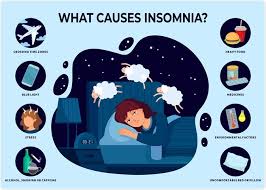Understanding Alcohol Cravings: Causes and Coping Strategies
Alcohol cravings can be a challenging aspect of managing one’s relationship with alcohol. Whether you’re trying to cut back on drinking or maintain sobriety, understanding the causes of alcohol cravings and learning effective coping strategies is essential.
Causes of Alcohol Cravings
Alcohol cravings can be triggered by various factors, including:
- Stress: Stressful situations or emotions can lead to a desire to numb feelings with alcohol.
- Social Pressure: Peer influence and social situations where alcohol is present can trigger cravings.
- Habitual Behavior: Over time, the brain associates certain activities or environments with drinking, leading to automatic cravings in those contexts.
- Emotional Distress: Feelings of sadness, loneliness, or anxiety may prompt cravings as a way to cope with negative emotions.
Coping Strategies for Alcohol Cravings
To manage alcohol cravings effectively, consider implementing the following coping strategies:
- Identify Triggers: Recognize your personal triggers for alcohol cravings and develop strategies to avoid or cope with them.
- Practice Mindfulness: Stay present in the moment and observe your thoughts and feelings without judgment. Mindfulness techniques can help you ride out cravings without acting on them.
- Seek Support: Reach out to friends, family, or support groups for encouragement and accountability during challenging times.
- Engage in Healthy Activities: Replace drinking behaviors with positive alternatives like exercise, hobbies, or relaxation techniques.
- Create a Plan: Develop a detailed plan for how you will respond to cravings when they arise. Having a strategy in place can help you stay committed to your goals.
In conclusion, understanding the underlying causes of alcohol cravings and proactively implementing coping strategies are crucial steps in managing your relationship with alcohol. By taking control of your triggers and developing healthy habits, you can navigate through cravings successfully and work towards a healthier lifestyle.
6 Effective Strategies to Manage and Reduce Alcohol Cravings
- Stay hydrated by drinking plenty of water throughout the day.
- Engage in regular physical activity to help reduce cravings and improve mood.
- Practice stress-reducing techniques such as deep breathing or meditation.
- Avoid keeping alcohol at home to minimize temptation.
- Seek support from friends, family, or a support group if you’re struggling with cravings.
- Distract yourself with hobbies, activities, or tasks to shift your focus away from alcohol.
Stay hydrated by drinking plenty of water throughout the day.
To help manage alcohol cravings, it is important to stay hydrated by drinking plenty of water throughout the day. Adequate hydration not only supports overall health but can also help reduce the intensity of cravings. Drinking water can keep you feeling full and satisfied, minimizing the urge to reach for alcohol. Additionally, staying hydrated can improve your mood and energy levels, making it easier to resist temptation and maintain a balanced approach to your relationship with alcohol.
Engage in regular physical activity to help reduce cravings and improve mood.
Engaging in regular physical activity is a valuable tip for managing alcohol cravings and enhancing mood. Exercise not only provides a healthy outlet for stress and emotions but also releases endorphins that can uplift your mood and reduce the intensity of cravings. By incorporating physical activity into your routine, you not only improve your overall well-being but also create a positive distraction from the urge to drink. Whether it’s a brisk walk, a yoga session, or a gym workout, staying active can be a powerful tool in your journey towards overcoming alcohol cravings.
Practice stress-reducing techniques such as deep breathing or meditation.
To help manage alcohol cravings, it is beneficial to practice stress-reducing techniques such as deep breathing or meditation. These mindfulness practices can help calm the mind and body, reducing the urge to turn to alcohol as a coping mechanism during stressful situations. By incorporating deep breathing or meditation into your daily routine, you can cultivate a sense of inner peace and resilience that supports you in overcoming alcohol cravings and maintaining a healthier lifestyle.
Avoid keeping alcohol at home to minimize temptation.
To minimize temptation and reduce the likelihood of succumbing to alcohol cravings, a helpful tip is to avoid keeping alcohol at home. By removing the physical presence of alcohol in your living space, you create a barrier that can deter impulsive drinking. This simple yet effective strategy can make it easier to stick to your goals of cutting back on drinking or maintaining sobriety. When alcohol is not readily available, you are less likely to give in to cravings and more empowered to make healthier choices for yourself.
Seek support from friends, family, or a support group if you’re struggling with cravings.
Seeking support from friends, family, or a support group can be a valuable resource when facing alcohol cravings. Opening up to loved ones or connecting with individuals who understand your struggles can provide encouragement, guidance, and a sense of accountability. By sharing your challenges and receiving support from others, you can feel less isolated in your journey and gain strength to navigate through cravings more effectively. Remember, you don’t have to face this alone – reaching out for help is a powerful step towards managing alcohol cravings and working towards a healthier lifestyle.
Distract yourself with hobbies, activities, or tasks to shift your focus away from alcohol.
When faced with alcohol cravings, one effective tip is to distract yourself with hobbies, activities, or tasks to shift your focus away from alcohol. Engaging in enjoyable pastimes or productive tasks can redirect your attention and help break the cycle of craving. Whether it’s picking up a new hobby, going for a walk, or tackling a project, keeping yourself occupied can reduce the intensity of cravings and provide a healthy outlet for your energy and emotions. By actively engaging in alternative activities, you can effectively manage alcohol cravings and maintain your commitment to sobriety.

